attempting obscurity
I mess around with writing, but deep down I'm pretty sure I'll never actually get published because I treat it like a hobby and not a passion -- I write when I have time, instead of making time to write.
When I read, I prefer YA sci-fi/ fantasy as my go-to fiction reads. I tend toward this genre because I read fiction as an escape from the daily drudge of life. YA sci/fi-fantasy usually has more upbeat/ hopeful endings, while adult fiction of any genre (except romance) tends to have more depressingly realistic endings. Sometimes I read romance novels, but I really prefer the type with plot/ character development between sex scenes, and I don't like having to hunt for them.
In non-fiction, I prefer history, biographies, psychology, gender studies, social/applied sciences, and law/ public policy.
Currently reading
The Time Traveler's Wife
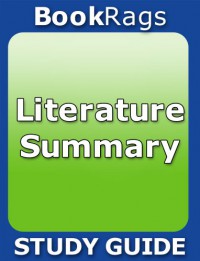
I imported my library over from goodreads, and some of the covers seem to have gone "missing" in the move. I've been trying to find somewhere to link to so this book has a cover again, but for whatever reason I can't use the "shelve it" pin/ bookmark to "shelve" a book from the booksellers I actually shop at (B&N, Powells). For this particular book, I guess I had inadvertantly selected the literary summary at Goodreads -- I actually did read the book itself, and I quite enjoyed it. It was a little weird/ creepy when you realize he essentially groomed his furutre wife via time travel.
Ethan of Athos
 Bujold is quickly becoming one of my favorite authors, as her descriptive writing and masterful weaving of varied plotlines are adept at capturing the imagination and holding a reader's attention.Ethan of Athos looked at the possible ramifications of religion in a new and interesting way, and allowed for the determination of the human spirit to overcome and adapt.
Bujold is quickly becoming one of my favorite authors, as her descriptive writing and masterful weaving of varied plotlines are adept at capturing the imagination and holding a reader's attention.Ethan of Athos looked at the possible ramifications of religion in a new and interesting way, and allowed for the determination of the human spirit to overcome and adapt.
The Lord of the Rings
 As this was much faster-paced and more action-packed than its predecessor, I enjoyed this book much more than The Fellowship of the Ring. If it was possible to understand this book without reading the Fellowship of the Ring, I'd recommend everyone start the series with Two Towers. Unfortunately, that's not possible. So don't do that. Long story short: The entire series is a bastion of the fantasy genre, and a must-read for any fantasy fan. Luckily, by the end of the first book, the pace starts picking up. By the second book, it's whipping right along, and the third book is also a great read.
As this was much faster-paced and more action-packed than its predecessor, I enjoyed this book much more than The Fellowship of the Ring. If it was possible to understand this book without reading the Fellowship of the Ring, I'd recommend everyone start the series with Two Towers. Unfortunately, that's not possible. So don't do that. Long story short: The entire series is a bastion of the fantasy genre, and a must-read for any fantasy fan. Luckily, by the end of the first book, the pace starts picking up. By the second book, it's whipping right along, and the third book is also a great read.
Fahrenheit 451: A Novel
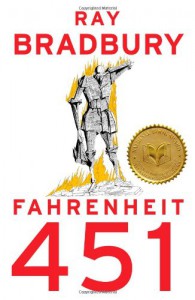 I've always liked Ray Bradbury, and I thought this was an interesting view of a possible future. It ended on what I felt was a hopeful note, and the writing was classic Bradbury: straightforward yet poetic.
I've always liked Ray Bradbury, and I thought this was an interesting view of a possible future. It ended on what I felt was a hopeful note, and the writing was classic Bradbury: straightforward yet poetic.
The Golden Compass
 Well written, and I'm interested to see where the series goes. I was pulled into this from the first paragraph, and have so many questions that I hope the series will answer. I found the characterizations and dialogue realistic and appealing, and identified strongly with the main character due mainly to the strong writing.
Well written, and I'm interested to see where the series goes. I was pulled into this from the first paragraph, and have so many questions that I hope the series will answer. I found the characterizations and dialogue realistic and appealing, and identified strongly with the main character due mainly to the strong writing.
All the Fishes Come Home to Roost: An American Misfit in India
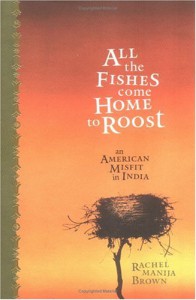 I very much enjoyed this. I don't normally read autobiographies, but the verve and humor with which this one is written captures the reader from the start. I couldn't put it down. I found her personal insights on topics such as religion, mental illness, and cultural divides incredibly interesting and thought-provoking. A well written and captivating read.
I very much enjoyed this. I don't normally read autobiographies, but the verve and humor with which this one is written captures the reader from the start. I couldn't put it down. I found her personal insights on topics such as religion, mental illness, and cultural divides incredibly interesting and thought-provoking. A well written and captivating read.
Fantasy Gone Wrong
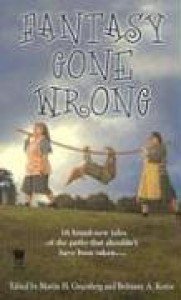 I like to get short story anthologies, because they're interruptable (I have issues with putting a book down mid-plot to go do something else; I'm not good at it), they often introduce new writers or allow a favorite and much-read author to explore genres other than what I normally see them in, and they're just all around cool.This one was something of a disappointment. The stories weren't all that interesting, and I often found myself bored or irritated only a few paragraphs in. It wasn't captivating, descriptive writing. It just didn't deliver.
I like to get short story anthologies, because they're interruptable (I have issues with putting a book down mid-plot to go do something else; I'm not good at it), they often introduce new writers or allow a favorite and much-read author to explore genres other than what I normally see them in, and they're just all around cool.This one was something of a disappointment. The stories weren't all that interesting, and I often found myself bored or irritated only a few paragraphs in. It wasn't captivating, descriptive writing. It just didn't deliver.
Harry Potter And The Order Of The Phoenix
 The way Ms. Rowling finally started to flesh out the Slytherin's and give them a more rounded personality was cool. The way she finally (finally, after 5 books!) fleshed out Ginny, the obviously intended love interest for Harry, was just irritating.From Book 2, anybody could tell that Harry + Ginny = meant-to-be in J.K. Rowling's world. I don't know about anyone else who read the series, but I was second-guessing myself about that by book 5. Not because of Cho or any other obviously temporary love interest, but because as a character, Ginny was not fleshed out at all. It's possible that Ms. Rowling just wanted the reader to "see" Ginny through Harry's eyes, and therefore didn't flesh her character out until she was ready for them to get together. Whatever her thought process, it was . . . not the best way to go. By keeping Ginny a fairly one-dimensional character through most of the series and then suddenly introducing her as girl-fantastic (Hi, I'm Ginny! I can do impressions! And play Quidditch like a rock star! Also, I beat up Slytherin's and mock them cruelly! I rock at magic, too! And I'm funny and beautiful with lots of boyfriends!) J.K. made Ginny a complete throw-away character.Which, interestingly, Harry does. He breaks up with her to go fight a war that he takes her brother (his best friend) and Hermione on -- so what, he loves his friends more than his girl? He's willing to allow them their independence and decision to fight with him, but orders Ginny to stay away? What a jerk. And then, of course, when it's all over -- hello, Ginny, how nice, you waited for me! Life is predictably perfect!Sorry, this was actually a great book. Just don't read book 7. Harry kills Voldemort in an obvious Christian parallel. That's about it.
The way Ms. Rowling finally started to flesh out the Slytherin's and give them a more rounded personality was cool. The way she finally (finally, after 5 books!) fleshed out Ginny, the obviously intended love interest for Harry, was just irritating.From Book 2, anybody could tell that Harry + Ginny = meant-to-be in J.K. Rowling's world. I don't know about anyone else who read the series, but I was second-guessing myself about that by book 5. Not because of Cho or any other obviously temporary love interest, but because as a character, Ginny was not fleshed out at all. It's possible that Ms. Rowling just wanted the reader to "see" Ginny through Harry's eyes, and therefore didn't flesh her character out until she was ready for them to get together. Whatever her thought process, it was . . . not the best way to go. By keeping Ginny a fairly one-dimensional character through most of the series and then suddenly introducing her as girl-fantastic (Hi, I'm Ginny! I can do impressions! And play Quidditch like a rock star! Also, I beat up Slytherin's and mock them cruelly! I rock at magic, too! And I'm funny and beautiful with lots of boyfriends!) J.K. made Ginny a complete throw-away character.Which, interestingly, Harry does. He breaks up with her to go fight a war that he takes her brother (his best friend) and Hermione on -- so what, he loves his friends more than his girl? He's willing to allow them their independence and decision to fight with him, but orders Ginny to stay away? What a jerk. And then, of course, when it's all over -- hello, Ginny, how nice, you waited for me! Life is predictably perfect!Sorry, this was actually a great book. Just don't read book 7. Harry kills Voldemort in an obvious Christian parallel. That's about it.
Johnny Tremain
 I haven't read this in ages and ages, but I've been telling so many people about it lately that I figured I should just go ahead and put up a review.Johnny Tremain is, quite simply, one of my favorite books ever. It's among those beautiful childhood literary experiences that introduced me to my enduring love of historical fiction -- and not incidentally, to my love of history. It's through Johnny Tremain the events of the Revolutionary War first came alive for me, and through Johnny Tremain that I first learned concepts such as "apprenticeship." It's because of Johnny Tremain that I first realized that while actual time travel isn't possible, at least books can help me "witness" events and times I couldn't possibly see in reality.I read it so often as a kid that my copy of it -- which was the edition pictured above, a paperback version with an actual paper-style cover -- fell apart due to the frequent readings. I taped it together, but by the time I was 17, all the tape in the world couldn't save it's life. I bought a new copy, which I've read often enough that the spine is starting to show abuse and the pages are worn soft, but I haven't read it in 5 years or so.
I haven't read this in ages and ages, but I've been telling so many people about it lately that I figured I should just go ahead and put up a review.Johnny Tremain is, quite simply, one of my favorite books ever. It's among those beautiful childhood literary experiences that introduced me to my enduring love of historical fiction -- and not incidentally, to my love of history. It's through Johnny Tremain the events of the Revolutionary War first came alive for me, and through Johnny Tremain that I first learned concepts such as "apprenticeship." It's because of Johnny Tremain that I first realized that while actual time travel isn't possible, at least books can help me "witness" events and times I couldn't possibly see in reality.I read it so often as a kid that my copy of it -- which was the edition pictured above, a paperback version with an actual paper-style cover -- fell apart due to the frequent readings. I taped it together, but by the time I was 17, all the tape in the world couldn't save it's life. I bought a new copy, which I've read often enough that the spine is starting to show abuse and the pages are worn soft, but I haven't read it in 5 years or so.
Twilight (The Twilight Saga, Book 1)
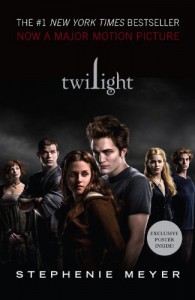 I think my eyes were bleeding a little when I finished this book. It was, without a doubt, one of the most juvenile pieces of so-called literature I have ever had the misfortune to read. Besides the simplistic, predictable plotline and gooey, overly sentimental descriptions, this unfortunate book was also burdened with logistical errors.I read predominantly fantasy and sci-fi, and I love it, so don't try to excuse logistical errors within the genre as, "But it's fantasy!" Writing fantasy and sci-fi simply means that one adheres to the rules within the world. Meyers made it difficult on herself by placing already defined fantasy characters within a real-world setting. When an author does this, the author must remain true to reality while aligning the fantasy aspect of the novel to the predominant reality. Meyers failed in this.Just two minor instances: It doesn't rain that much in Fork, WA. It does rain a lot, but not as depicted in the book, and if you're going to use a real-world setting in a book -- even a fantasy book -- than depict it accurately for the time you are portraying. As well, the scene in the H.S. biology class where the students were pricking their fingers, would not likely not happen. Unsanitary. It is more likely that a biology teacher would request saliva samples. It was a weak construct to further the story.As for her fantasy characters, every explanation she made of the vampires and their abilities left a discerning reader with more questions. This is, without a doubt, one of the most popular books that is out today. I cannot fathom why.
I think my eyes were bleeding a little when I finished this book. It was, without a doubt, one of the most juvenile pieces of so-called literature I have ever had the misfortune to read. Besides the simplistic, predictable plotline and gooey, overly sentimental descriptions, this unfortunate book was also burdened with logistical errors.I read predominantly fantasy and sci-fi, and I love it, so don't try to excuse logistical errors within the genre as, "But it's fantasy!" Writing fantasy and sci-fi simply means that one adheres to the rules within the world. Meyers made it difficult on herself by placing already defined fantasy characters within a real-world setting. When an author does this, the author must remain true to reality while aligning the fantasy aspect of the novel to the predominant reality. Meyers failed in this.Just two minor instances: It doesn't rain that much in Fork, WA. It does rain a lot, but not as depicted in the book, and if you're going to use a real-world setting in a book -- even a fantasy book -- than depict it accurately for the time you are portraying. As well, the scene in the H.S. biology class where the students were pricking their fingers, would not likely not happen. Unsanitary. It is more likely that a biology teacher would request saliva samples. It was a weak construct to further the story.As for her fantasy characters, every explanation she made of the vampires and their abilities left a discerning reader with more questions. This is, without a doubt, one of the most popular books that is out today. I cannot fathom why.
A Civil Campaign
 I thought this was well-written and interesting. I particularly enjoyed the fact that the protagonist was not your usual "pretty boy" hero, nor was he a brooding victim of circumstance. I liked that he was funny, sarcastic and determined in the face of massive problematic medical issues. The various plot lines were woven together well, and character development was excellently done. This is actually the last book in the Vorkosigan series currently out, as far as I am aware, so I started it a little backwards -- but I look forward to reading the rest of the series.
I thought this was well-written and interesting. I particularly enjoyed the fact that the protagonist was not your usual "pretty boy" hero, nor was he a brooding victim of circumstance. I liked that he was funny, sarcastic and determined in the face of massive problematic medical issues. The various plot lines were woven together well, and character development was excellently done. This is actually the last book in the Vorkosigan series currently out, as far as I am aware, so I started it a little backwards -- but I look forward to reading the rest of the series.
Calico Captive
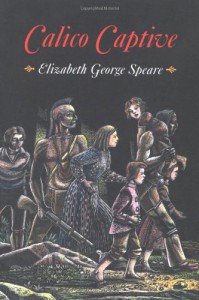 This is one of those books (like Johnny Tremain) that I read as a kid, and while I never did own a copy, I checked it out from the library so often it was at my house more often than at the library. It follows the story of Miriam, a young English colonial, who is captured by Indians during the French and Indian war. She's sold as a slave to some French Quebecoise, where she begins to make a name for herself as a seamstress. However, Miriam was not the only one captured -- her sister, nieces and nephew were also captured and enslaved. Miriam and her sister are faced with many hard choices as they try to pay their slave debts (if I recall, it's been a while since I read it) in Quebec, bring their family back together and eventually make their way home. As Miriam's seamstress business becomes more successful, she's courted by a handsome French soldier -- a moral dilemma, as he's allied with the same Indians who attacked her colony, and he fights and kills the British colonials she loves. At the same time, he helps her track down her scattered nieces and nephew, and assists Miriam in widening her clientele base.I've always loved this book, though I have to admit I rooted for the French solider. I always wanted Miriam to marry him and leave her stodgy English roots. Apparently the book is based on the diary of a real-life Miriam who actually experienced these events (I guess they left out all the rape-iness), so extra points for bringing history alive.
This is one of those books (like Johnny Tremain) that I read as a kid, and while I never did own a copy, I checked it out from the library so often it was at my house more often than at the library. It follows the story of Miriam, a young English colonial, who is captured by Indians during the French and Indian war. She's sold as a slave to some French Quebecoise, where she begins to make a name for herself as a seamstress. However, Miriam was not the only one captured -- her sister, nieces and nephew were also captured and enslaved. Miriam and her sister are faced with many hard choices as they try to pay their slave debts (if I recall, it's been a while since I read it) in Quebec, bring their family back together and eventually make their way home. As Miriam's seamstress business becomes more successful, she's courted by a handsome French soldier -- a moral dilemma, as he's allied with the same Indians who attacked her colony, and he fights and kills the British colonials she loves. At the same time, he helps her track down her scattered nieces and nephew, and assists Miriam in widening her clientele base.I've always loved this book, though I have to admit I rooted for the French solider. I always wanted Miriam to marry him and leave her stodgy English roots. Apparently the book is based on the diary of a real-life Miriam who actually experienced these events (I guess they left out all the rape-iness), so extra points for bringing history alive.
Peter Pan (Scribner Illustrated Classic)
 Another one I read as a teen. And I've always gone for this very specific edition, illustrated by Trina Schart Hyman, because it was the first copy I found.Of course, Peter Pan is magical in and of itself, but I will fully admit that the Disney version of Peter Pan had somewhat soured me on certain aspects . . . Tinkerbell, for instance. And a little bit on Tiger Lily. So I finally pick up the actual book (and we all know the book is always, always better than the movie), and it's fantastic. Fabulous. But in addition to how completely awesome the book is?This is Hyman's Tiger Lily.And all of her art is full of that sort of detail and energy, that pulse of wild beauty. It's incredible. She captures the mischievousness, the cruelty, the edginess of Neverland. This is a land of disorder, of pirates and Indians and wild children. This is not Disney's sing-along happy place, this is a land where scavenging, hungry boys fight like wild dogs with vicious pirates, but mermaids sing in lagoons and faeries skip through trees, laughing. Neverland is a magical, treacherous place -- and it's captured in Hyman's drawings and in Barrie's words in a way that Disney could never even hint at.
Another one I read as a teen. And I've always gone for this very specific edition, illustrated by Trina Schart Hyman, because it was the first copy I found.Of course, Peter Pan is magical in and of itself, but I will fully admit that the Disney version of Peter Pan had somewhat soured me on certain aspects . . . Tinkerbell, for instance. And a little bit on Tiger Lily. So I finally pick up the actual book (and we all know the book is always, always better than the movie), and it's fantastic. Fabulous. But in addition to how completely awesome the book is?This is Hyman's Tiger Lily.And all of her art is full of that sort of detail and energy, that pulse of wild beauty. It's incredible. She captures the mischievousness, the cruelty, the edginess of Neverland. This is a land of disorder, of pirates and Indians and wild children. This is not Disney's sing-along happy place, this is a land where scavenging, hungry boys fight like wild dogs with vicious pirates, but mermaids sing in lagoons and faeries skip through trees, laughing. Neverland is a magical, treacherous place -- and it's captured in Hyman's drawings and in Barrie's words in a way that Disney could never even hint at.
The Chronicles of Chrestomanci, Volume 2: The Magicians of Caprona / Witch Week
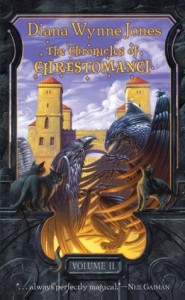 It's a cute, quick and fun little fantasy read. Diana Wynne Jones is one of those authors who manages to convey a quirky sense of humor without it becoming all the book is worth indulging in for. She develops plot and character well, and reading her stuff is perfect for a light, indulging snack of the written word. It's never too serious or too childish -- she manages to strike a note of glee that allows readers of all ages to enjoy her works.
It's a cute, quick and fun little fantasy read. Diana Wynne Jones is one of those authors who manages to convey a quirky sense of humor without it becoming all the book is worth indulging in for. She develops plot and character well, and reading her stuff is perfect for a light, indulging snack of the written word. It's never too serious or too childish -- she manages to strike a note of glee that allows readers of all ages to enjoy her works.
The Silver Dream: An InterWorld Novel
 Quick Note: I read this on my brand-new Nook. I actually checked it out from our local library's e-reading program, which means I downloaded it from the library website onto my laptop, then loaded it into my Nook. I have to say, the Nook is freakin' awesome. The main thing I was concerned about was whether or not the electronic gadget would "disappear," so to speak, as I was reading -- like a paperback. I am happy to report that when reading on the Nook, I sink into the story just as easily as when I read a physical book. My eyes don't hurt after 20 minutes like when I read on a laptop. I surface hours later, head spinning and dizzy with the characters and completely unaware of the medium I was introduced to them through.Speaking of characters -- I really don't need to review this, if you're familiar with Gaiman's writing. Unlike other prolific writers (looking at you, Nicholas Sparks and Nora Roberts), Gaiman doesn't follow the same basic plotline over and over. He doesn't recycle characters, slapping a new face and name onto the same stock personalities. No, every Gaiman book is a fresh treat. A tour-de-force in writing that takes the reader to new planes of idea and fantasy. Every time I read a Gaiman book, I half-expect to run into an old, familiar character -- he writes so much, you can't help but expect he'll begin recycling plots and characters. But it hasn't, as yet, happened. As usual, his plot pacing is quick and fun, his characters are well-fleshed out, the motivations and actions understandable and relatable. As usual, he introduces fantastic new ways of looking at classic sci-fi and fantasy -- I swear, the man takes a funhouse mirror to every existing fantasy/ mythology stereotype and turns them completely on their head. And as usual, his writing style (turn of phrase, dialogue, etc) is evocative, lyrical, descriptive and fun.Gaiman is an unparalleled joy to read. I have favorites among his books, true, but I can say with complete honesty that Gaiman is the one author I've read where I like every book he's written.
Quick Note: I read this on my brand-new Nook. I actually checked it out from our local library's e-reading program, which means I downloaded it from the library website onto my laptop, then loaded it into my Nook. I have to say, the Nook is freakin' awesome. The main thing I was concerned about was whether or not the electronic gadget would "disappear," so to speak, as I was reading -- like a paperback. I am happy to report that when reading on the Nook, I sink into the story just as easily as when I read a physical book. My eyes don't hurt after 20 minutes like when I read on a laptop. I surface hours later, head spinning and dizzy with the characters and completely unaware of the medium I was introduced to them through.Speaking of characters -- I really don't need to review this, if you're familiar with Gaiman's writing. Unlike other prolific writers (looking at you, Nicholas Sparks and Nora Roberts), Gaiman doesn't follow the same basic plotline over and over. He doesn't recycle characters, slapping a new face and name onto the same stock personalities. No, every Gaiman book is a fresh treat. A tour-de-force in writing that takes the reader to new planes of idea and fantasy. Every time I read a Gaiman book, I half-expect to run into an old, familiar character -- he writes so much, you can't help but expect he'll begin recycling plots and characters. But it hasn't, as yet, happened. As usual, his plot pacing is quick and fun, his characters are well-fleshed out, the motivations and actions understandable and relatable. As usual, he introduces fantastic new ways of looking at classic sci-fi and fantasy -- I swear, the man takes a funhouse mirror to every existing fantasy/ mythology stereotype and turns them completely on their head. And as usual, his writing style (turn of phrase, dialogue, etc) is evocative, lyrical, descriptive and fun.Gaiman is an unparalleled joy to read. I have favorites among his books, true, but I can say with complete honesty that Gaiman is the one author I've read where I like every book he's written.








